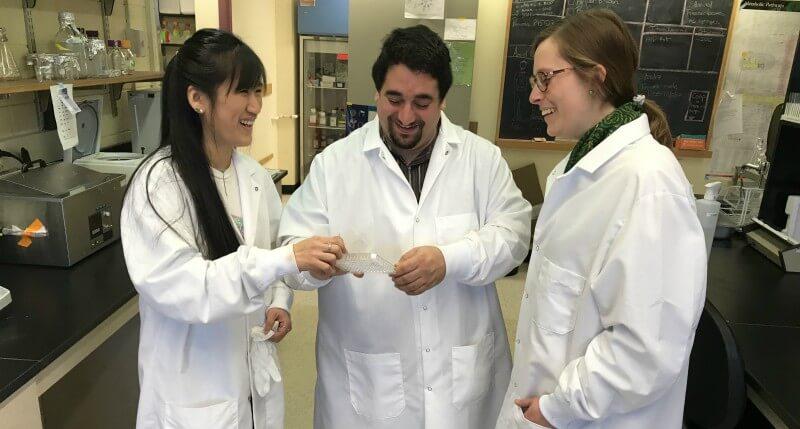New funding from the National Institutes of Health may lead to targeted treatments to fight pathogens and toxic stimuli that cause chronic illnesses including cancer. The R21 NIH grant, titled "The Role of Glycogen Metabolism in Supporting Dendritic Cell Immune Function” will support continued research led by Biomedical and Health Sciences Professor Eyal Amiel on the metabolic regulation of immune responses to infection.
Last September, the journal Cell Metabolism published findings by Amiel showing how intracellular glycogen stores regulate immune response. Amiel’s team found that dendritic cells — the special cells that help activate the immune system — draw from glucose (sugar) stored within the cell. The research added an important missing piece to the puzzle of how metabolism helps regulate responses to infection. From that research, “we know that if we prevent the cells’ ability to use glycogen during that early window there are long-term consequences for the abilities of those dendritic cells to stimulate T cells, even hours and days after the fact,” Amiel explained. T cells originate from bone marrow cells and protect the body from infection.
The new grant from NIH allows further investigation into the mechanisms behind sugar metabolism as a regulator of immune responses, with potential to provide insights into how to boost immunity to combat viral infections or cancer, or suppress immune reactions in patients with autoimmune disorders, including lupus and multiple sclerosis. This grant will allow Amiel and colleagues to validate their cellular findings in living organisms (mice) to measure the impact of blocking the creation of the intracellular glycogen supply on the longer-term immunological capacity of those cells.
While the team is not actively studying diabetes or searching for a cancer vaccine, “if we can understand how immune cells use sugar, we can uncover specific cellular switches to make an immune response more potent or less potent,” Amiel said. For example, “in situations like diabetes where systemic sugar levels fluctuate between too high and too low, does this alter the immune response? Or, can the right metabolic environment and access to sugar help stimulate an immune response to cancer at the cellular level? Now we can start asking these types of questions in an intact animal.”
